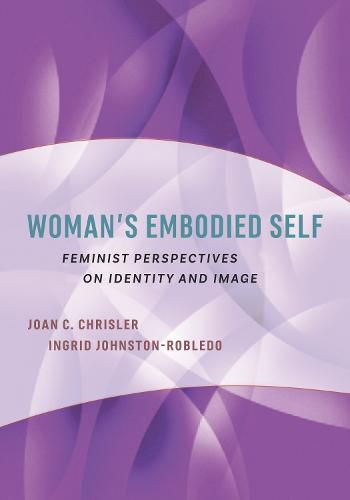Readings Newsletter
Become a Readings Member to make your shopping experience even easier.
Sign in or sign up for free!
You’re not far away from qualifying for FREE standard shipping within Australia
You’ve qualified for FREE standard shipping within Australia
The cart is loading…






In this compelling book, Joan Chrisler and Ingrid Johnston-Robledo examine how women relate to their bodies and how attitudes toward the body affect women’s sense of self. In particular, they document the disturbing, never-ending barrage of standards used to judge women’s bodies. For example, women are taught that their bodies should be beautiful (but not as a result of too much effort), sexy (but not slutty), pure (but not prudish), slender (but curvy in the right places), youthful (if they are adults), mature (if they are adolescents), feminine, healthy, and able-bodied. These impossible standards prompt women to pursue life-long body improvement projects - which leads to self-objectification or a negative embodied self.
The authors review the research on these phenomena and analyze them through the lens of various psychological theories, including objectification theory, stigma theory, terror management theory, and stereotype embodiment theory. Importantly, they then suggest ways to help women and girls achieve a positive embodied self, which includes challenging and resisting pressures to alter and discipline their bodies in unhealthy ways.
$9.00 standard shipping within Australia
FREE standard shipping within Australia for orders over $100.00
Express & International shipping calculated at checkout
In this compelling book, Joan Chrisler and Ingrid Johnston-Robledo examine how women relate to their bodies and how attitudes toward the body affect women’s sense of self. In particular, they document the disturbing, never-ending barrage of standards used to judge women’s bodies. For example, women are taught that their bodies should be beautiful (but not as a result of too much effort), sexy (but not slutty), pure (but not prudish), slender (but curvy in the right places), youthful (if they are adults), mature (if they are adolescents), feminine, healthy, and able-bodied. These impossible standards prompt women to pursue life-long body improvement projects - which leads to self-objectification or a negative embodied self.
The authors review the research on these phenomena and analyze them through the lens of various psychological theories, including objectification theory, stigma theory, terror management theory, and stereotype embodiment theory. Importantly, they then suggest ways to help women and girls achieve a positive embodied self, which includes challenging and resisting pressures to alter and discipline their bodies in unhealthy ways.